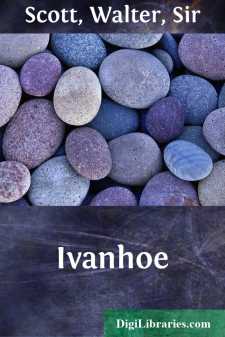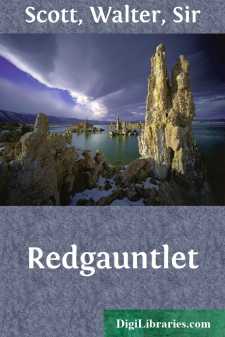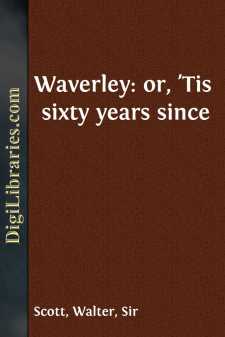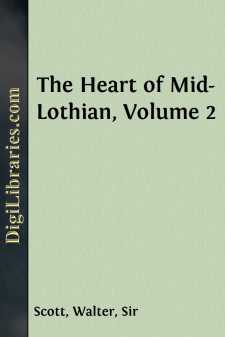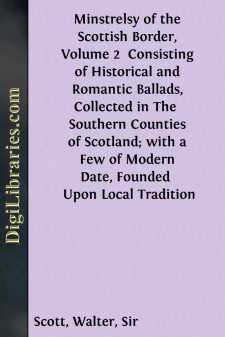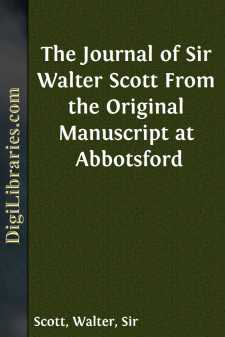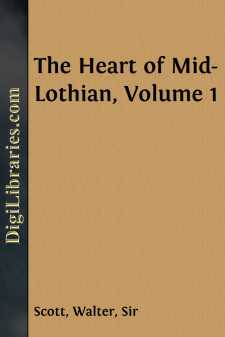Categories
- Antiques & Collectibles 13
- Architecture 36
- Art 48
- Bibles 22
- Biography & Autobiography 813
- Body, Mind & Spirit 142
- Business & Economics 28
- Children's Books 14
- Children's Fiction 11
- Computers 4
- Cooking 94
- Crafts & Hobbies 4
- Drama 346
- Education 46
- Family & Relationships 57
- Fiction 11829
- Games 19
- Gardening 17
- Health & Fitness 34
- History 1377
- House & Home 1
- Humor 147
- Juvenile Fiction 1873
- Juvenile Nonfiction 202
- Language Arts & Disciplines 88
- Law 16
- Literary Collections 686
- Literary Criticism 179
- Mathematics 13
- Medical 41
- Music 40
- Nature 179
- Non-Classifiable 1768
- Performing Arts 7
- Periodicals 1453
- Philosophy 64
- Photography 2
- Poetry 896
- Political Science 203
- Psychology 42
- Reference 154
- Religion 513
- Science 126
- Self-Help 84
- Social Science 81
- Sports & Recreation 34
- Study Aids 3
- Technology & Engineering 59
- Transportation 23
- Travel 463
- True Crime 29
Ivanhoe
by: Walter Scott
Categories:
Description:
Excerpt
The Author of the Waverley Novels had hitherto proceeded in an unabated course of popularity, and might, in his peculiar district of literature, have been termed "L'Enfant Gate" of success. It was plain, however, that frequent publication must finally wear out the public favour, unless some mode could be devised to give an appearance of novelty to subsequent productions. Scottish manners, Scottish dialect, and Scottish characters of note, being those with which the author was most intimately, and familiarly acquainted, were the groundwork upon which he had hitherto relied for giving effect to his narrative. It was, however, obvious, that this kind of interest must in the end occasion a degree of sameness and repetition, if exclusively resorted to, and that the reader was likely at length to adopt the language of Edwin, in Parnell's Tale:
"'Reverse the spell,' he cries, 'And let it fairly now suffice. The gambol has been shown.'"
Nothing can be more dangerous for the fame of a professor of the fine arts, than to permit (if he can possibly prevent it) the character of a mannerist to be attached to him, or that he should be supposed capable of success only in a particular and limited style. The public are, in general, very ready to adopt the opinion, that he who has pleased them in one peculiar mode of composition, is, by means of that very talent, rendered incapable of venturing upon other subjects. The effect of this disinclination, on the part of the public, towards the artificers of their pleasures, when they attempt to enlarge their means of amusing, may be seen in the censures usually passed by vulgar criticism upon actors or artists who venture to change the character of their efforts, that, in so doing, they may enlarge the scale of their art.
There is some justice in this opinion, as there always is in such as attain general currency. It may often happen on the stage, that an actor, by possessing in a preeminent degree the external qualities necessary to give effect to comedy, may be deprived of the right to aspire to tragic excellence; and in painting or literary composition, an artist or poet may be master exclusively of modes of thought, and powers of expression, which confine him to a single course of subjects. But much more frequently the same capacity which carries a man to popularity in one department will obtain for him success in another, and that must be more particularly the case in literary composition, than either in acting or painting, because the adventurer in that department is not impeded in his exertions by any peculiarity of features, or conformation of person, proper for particular parts, or, by any peculiar mechanical habits of using the pencil, limited to a particular class of subjects.
Whether this reasoning be correct or otherwise, the present author felt, that, in confining himself to subjects purely Scottish, he was not only likely to weary out the indulgence of his readers, but also greatly to limit his own power of affording them pleasure. In a highly polished country, where so much genius is monthly employed in catering for public amusement, a fresh topic, such as he had himself had the happiness to light upon, is the untasted spring of the desert;—
"Men bless their stars and call it luxury."
But when men and horses, cattle, camels, and dromedaries, have poached the spring into mud, it becomes loathsome to those who at first drank of it with rapture; and he who had the merit of discovering it, if he would preserve his reputation with the tribe, must display his talent by a fresh discovery of untasted fountains.
If the author, who finds himself limited to a particular class of subjects, endeavours to sustain his reputation by striving to add a novelty of attraction to themes of the same character which have been formerly successful under his management, there are manifest reasons why, after a certain point, he is likely to fail....


